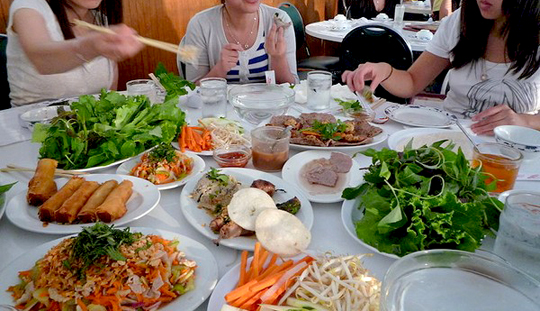Washington, Mar 8: Trying to stick to a diet? You may want to avoid eating out with friends, say scientists who found that the temptation to overeat is stronger in social settings such as restaurants.

Researchers from University of Pittsburgh in the US, used smartphones and a custom-developed application to capture data of 150 dieters, 90 per cent of which were women, moved through everyday life for 12 months.
The participants were trying to limit calories to a specific number per day.
The technique deployed to survey the dieters was ecological momentary assessment (EMA), which assesses emotions and behaviours in real-time and in natural settings.
Participants average body-mass index (BMI) was 34.0. During the study, women weighing less than 90 kilogrammes were given a daily diet target of 1,200 calories, and men at that weight had a target of 1,500 calories.
For men and women weighing more than that, the goal for women 1,500 calories and 1,800 for men.
Dieters aimed to limit fat to about 25 per cent of total calories, said Lora E Burke, professor at University of Pittsburgh in the US.
The dieters reported their surroundings, what they were feeling and whether they were tempted to break or broke their eating plan.
Researchers found that the chance of diet lapse was about 60 per cent when eating with others. Participants had a 60 per cent risk of overeating in a restaurant.
Participants had fewer temptations in their own or someone elses home than in a restaurant, but when tempted, they still had 60 per cent chance of a diet lapse.
Odds of a diet lapse were lower in other locations, including work (about 40 percent) or in a car (about 30 percent).
However, participants lapse in diet almost half the time when alone.
"Research into understanding and preventing weight regain is vital for improving the public health," said Burke.
"Helping an individual anticipate challenges and problem-solve high-risk situations can empower them to stay on track with their weight loss/weight maintenance plan," she added.





Comments
Add new comment